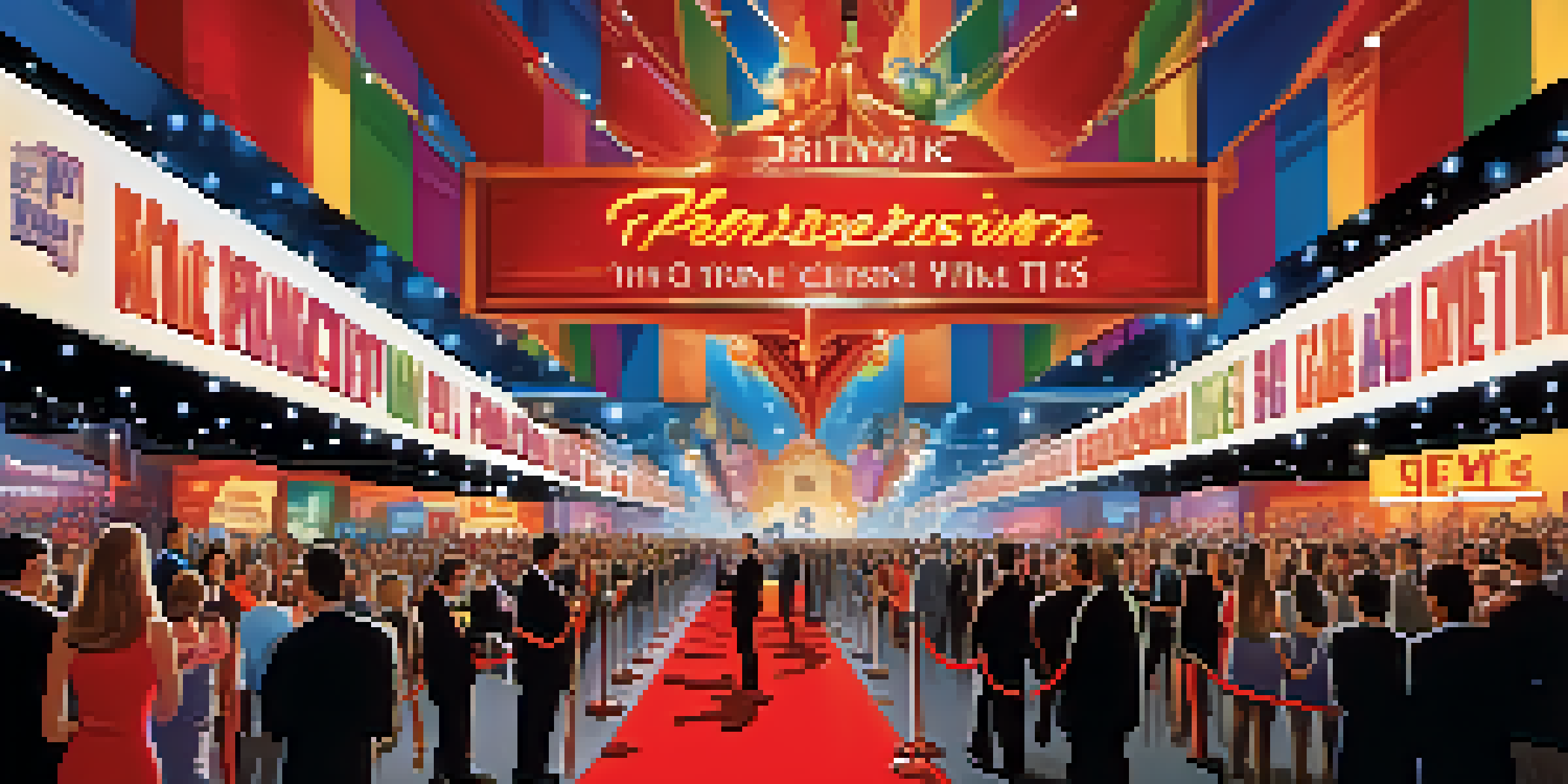Influential Hollywood Films and Their Advertising Strategies

The Power of Marketing in Film Success
Marketing plays a crucial role in the success of any film, often determining its box office performance. A well-crafted advertising strategy can create buzz, drawing viewers in and creating lasting impressions. For instance, films like 'Star Wars' not only captivated audiences with their storytelling but also with innovative marketing that included merchandise, trailers, and fan events.
Case Study: The 'Jaws' Phenomenon
When 'Jaws' hit theaters in 1975, its marketing strategy was groundbreaking. The film's summer release was paired with a suspenseful trailer that teased audiences without revealing too much. This created a sense of intrigue and fear, prompting viewers to flock to theaters, forever changing how future films would be marketed.
Marketing Drives Film Success
A strategic marketing approach can significantly influence a film's box office performance and audience engagement.
Innovative Strategies in 'The Blair Witch Project'
'The Blair Witch Project' utilized a unique marketing strategy that blurred the lines between fiction and reality. The film's creators launched an extensive online campaign, complete with a website that presented the film as a real documentary. This clever tactic not only generated curiosity but also allowed audiences to engage with the story before the film even premiered.
The Role of Social Media: 'Deadpool'
'Deadpool' revolutionized film marketing with its savvy use of social media. The film's quirky, self-aware campaigns resonated with fans, who actively engaged with the content. By utilizing platforms like Twitter and Instagram, the marketing team created a community around the film, ensuring it reached a broad audience and became a box office hit.
Innovative Campaigns Create Buzz
Unique marketing strategies, like those used for 'The Blair Witch Project' and 'Deadpool', can captivate audiences and foster community around a film.
Merchandising Magic: 'Star Wars' Legacy
The 'Star Wars' franchise is a prime example of how merchandising can amplify a film's marketing strategy. From action figures to video games, the franchise capitalized on its characters and storylines long after the films were released. This not only kept the audience engaged but also created a continuous revenue stream that many blockbuster films now aspire to replicate.
Emotional Connection: Disney's Strategy
Disney has mastered the art of creating emotional connections through its marketing. Films like 'The Lion King' leverage nostalgia, drawing in audiences who grew up with the story. By focusing on the emotional elements and family-friendly themes, Disney ensures that its films resonate with multiple generations, boosting viewership and merchandise sales.
Emotional Connections Enhance Appeal
Brands like Disney leverage nostalgia and emotional storytelling to resonate with viewers across generations, boosting both viewership and merchandise sales.
Viral Marketing: 'It' and the Power of Fear
The marketing campaign for 'It' harnessed the power of viral marketing to instill a sense of fear and anticipation. Clever use of social media, including creepy teasers and interactive content, kept audiences talking and sharing. This word-of-mouth approach proved effective, as it turned curiosity into ticket sales and made 'It' a cultural phenomenon.
Conclusion: The Evolution of Film Marketing
From traditional trailers to digital campaigns, film marketing continues to evolve. Each successful film adapts its strategy to connect with audiences in new and exciting ways. As Hollywood adapts to changing technologies and viewer preferences, the influence of these films and their advertising strategies will undoubtedly shape the future of cinema.